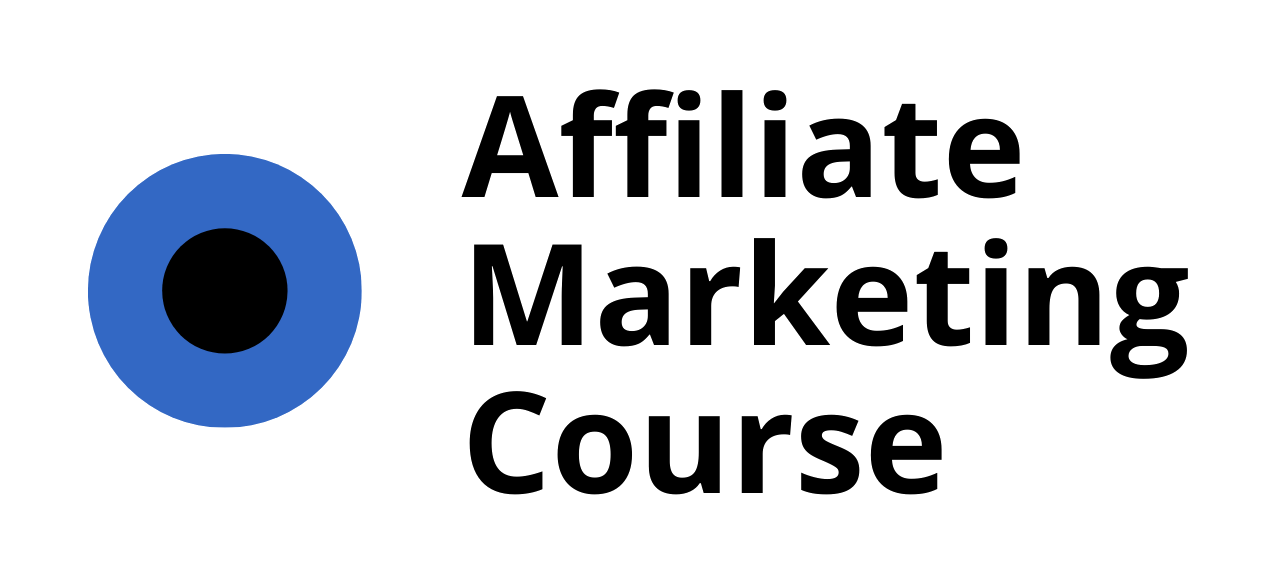As the digital landscape continues to evolve, businesses are increasingly turning to affiliate marketing as a lucrative way to reach new customers and drive revenue. However, with the rise of online competition, standing out from the crowd requires more than just a well-designed website – it demands a deep understanding of affiliate marketing SEO strategies, including the latest techniques for optimizing content, leveraging natural language processing, and maximizing search engine rankings.

The Best SEO Strategies for Affiliate Marketing
To succeed in affiliate marketing, having a solid understanding of SEO principles is crucial.
-
Keyword Research
Conduct thorough keyword research to identify relevant and high-volume search terms related to your niche.
This involves using tools like Google Keyword Planner, Ahrefs, or SEMrush to find keywords with low competition and high intent.
Focus on long-tail keywords that are more specific and less competitive, making it easier to rank for them.
-
On-Page Optimization
Optimize your website’s on-page elements to improve its visibility and ranking potential.
This includes optimizing title tags, meta descriptions, header tags, and internal linking structures.
Make sure your website is mobile-friendly, has fast loading speeds, and uses secure protocols (HTTPS).
-
Content Creation
Create high-quality, engaging, and informative content that resonates with your target audience.
This includes blog posts, videos, podcasts, and social media content that showcases your expertise and builds trust.
Aim to create content that is at least 1,500 words long, as this tends to perform better in search engine rankings.
-
Link Building
Build high-quality backlinks from authoritative sources to increase your website’s authority and ranking potential.
This includes guest blogging, resource pages, broken link building, and leveraging relationships with influencers.
Avoid buying links or participating in link schemes, as this can lead to penalties and damage your reputation.
-
Technical SEO
Improve your website’s technical aspects to enhance its crawlability, indexability, and rendering speed.
This includes optimizing images, minifying code, leveraging browser caching, and using schema markup.
Regularly monitor your website’s technical health using tools like Screaming Frog or Ahrefs Site Audit.
-
Analytics and Tracking
Set up and track key performance indicators (KPIs) to measure your website’s success and identify areas for improvement.
This includes tracking organic traffic, conversion rates, bounce rates, and average session duration.
Use analytics tools like Google Analytics or SEMrush to gain insights into your website’s performance and make data-driven decisions.
-
Local SEO
If you’re targeting a local audience, optimize your website for local SEO to improve your visibility in search engine results pages (SERPs).
This includes claiming and optimizing your Google My Business listing, creating location-specific content, and building local citations.
Use tools like Moz Local or BrightLocal to manage your local SEO efforts and track your progress.
By implementing these SEO strategies, you’ll be well on your way to dominating the affiliate marketing space and driving significant revenue for your business.
Can You Make $10,000 a Month with Affiliate Marketing?
Earning $10,000 per month with affiliate marketing is achievable, but it demands dedication, persistence, and a well-thought-out strategy.
- Develop a Niche-Specific Website
- Choose Relevant Affiliate Programs
- Produce High-Quality Content
- Build an Email List
- Utilize Social Media Platforms
- Monitor and Optimize Performance
- Promote Affiliate Products Effectively
- Stay Up-to-Date with Industry Trends
- Foster Strong Relationships with Affiliates
- Comply with FTC Guidelines
Create a high-quality website focused on a specific niche, offering valuable content and solutions to potential customers.
Select reputable affiliate programs that align with your niche and offer competitive commissions.
Develop engaging, informative, and SEO-optimized content that attracts and retains a clearly defined audience.
Create a mailing list and develop a lead magnet to capture email addresses from interested visitors.
Leverage social media platforms to promote your content, engage with your audience, and drive traffic to your website.
Analyze your website’s performance regularly, identify areas for improvement, and adjust your strategy accordingly.
Develop a solid understanding of your target audience’s needs and preferences, and promote affiliate products that meet those requirements.
Continuously educate yourself on the latest affiliate marketing strategies, tools, and best practices to stay ahead of the competition.
Nurture relationships with affiliates, provide support, and encourage collaboration to maximize earnings.
Adhere to Federal Trade Commission (FTC) guidelines regarding affiliate marketing disclosures and transparency.
By implementing these strategies and consistently working towards your goals, you can increase your chances of earning $10,000 per month with affiliate marketing.

What is Affiliate Marketing in SEO?
Affiliate marketing is a form of online marketing that involves partnering with affiliates who promote products or services from another company and earn a commission on sales or referrals made through their unique affiliate link.
-
Key Components:
- Merchant (product creator): The company that creates the product or service
- Affiliate (publisher): The individual or company that promotes the product or service
- Customer: The person who purchases the product or service through the affiliate’s link
-
How Affiliate Marketing Works:
- The merchant creates a product or service and sets up an affiliate program
- The affiliate joins the program and receives a unique affiliate link to share with their audience
- The affiliate promotes the product or service through various channels, such as social media, email marketing, or content creation
- The customer clicks on the affiliate link and makes a purchase or completes a desired action
- The affiliate earns a commission on the sale or referral
-
Benefits of Affiliate Marketing:
- Potential for high earnings with minimal upfront costs
- No risk for the affiliate, as they only promote products they believe in
- Opportunity to build relationships with customers and increase brand loyalty
- Access to a vast array of products and services to promote
-
Best Practices for Affiliate Marketing:
- Honesty and transparency with customers about affiliate relationships
- Diversify affiliate programs to minimize risk and maximize earnings
- Regularly communicate with customers and merchants to optimize promotions
- Foster strong relationships with customers to increase repeat business and referrals

The Most Effective SEO Tactic
To achieve success in search engine optimization, it’s essential to understand the most effective SEO tactic.
-
Keyword Research
Conduct thorough keyword research to identify relevant and high-volume search terms that align with your content strategy.
- Use tools like Google Keyword Planner, Ahrefs, or SEMrush to find keywords with low competition and high intent.
- Analyze your target audience’s search behavior and preferences to determine the most suitable keywords.
-
Content Quality and Quantity
Create high-quality, engaging, and informative content that meets the needs of your target audience.
- Develop a content calendar to ensure consistent publishing and minimize gaps in content.
- Optimize your content with relevant keywords, meta descriptions, and header tags.
-
Technical Optimization
Ensure your website is technically sound and optimized for search engines.
- Improve page speed, mobile responsiveness, and SSL encryption.
- Use schema markup to enhance your website’s visibility in search engine results pages (SERPs).
-
Link Building
Build high-quality backlinks from authoritative sources to increase your website’s credibility and ranking potential.
- Focus on acquiring links from relevant and trustworthy sources, such as industry publications and thought leaders.
- Avoid manipulative link schemes and prioritize natural link acquisition.
-
Local SEO
If you have a local business, optimize your website for local search by including your business’s name, address, and phone number (NAP) consistently across the web.
- Claim and optimize your Google My Business listing.
- Encourage customers to leave reviews on your Google My Business listing.
-
Analytics and Tracking
Monitor your website’s performance using analytics tools to track progress and make data-driven decisions.
- Set up Google Analytics to track traffic, engagement, and conversion rates.
- Use A/B testing and experimentation to refine your SEO strategy.
By implementing these effective SEO tactics, you’ll be well on your way to improving your website’s visibility, driving more traffic, and increasing conversions.
The Four Pillars of SEO
As an affiliate marketer, understanding the fundamental principles of Search Engine Optimization (SEO) is crucial for driving organic traffic to your website and increasing conversions.
-
On-page SEO
On-page SEO refers to the process of optimizing individual web pages to rank higher and earn more relevant traffic from search engines. This includes optimizing title tags, meta descriptions, header tags, and content to match the target audience’s search intent.
I’ve learned from my experience with Affiliate Marketing Course that a well-crafted title tag can significantly impact click-through rates and drive more traffic to your website.
-
Off-page SEO
Off-page SEO focuses on building your website’s authority and credibility through external signals, such as high-quality backlinks from reputable sources. This can include guest blogging, resource pages, and reviews from trusted authorities in your niche.
For instance, I’ve noticed that Moz has an excellent resource page that showcases their expertise in SEO and attracts high-quality backlinks.
-
Technical SEO
Technical SEO involves optimizing your website’s underlying infrastructure to improve its crawlability, indexability, and loading speed. This includes optimizing images, minifying code, and leveraging browser caching.
According to my knowledge, Google uses a complex algorithm to crawl and index websites, making technical SEO a critical aspect of SEO strategy.
-
Content SEO
Content SEO revolves around creating high-quality, engaging, and informative content that resonates with your target audience and addresses their pain points. This includes optimizing content for keywords, using header tags, and incorporating internal and external linking.
In my experience with Affiliate Marketing Course , creating high-quality content that addresses the needs of my audience has led to significant improvements in engagement and conversion rates.

Is SEO Still Relevant in 2024?
As we navigate the ever-evolving digital landscape, many wonder whether Search Engine Optimization (SEO) remains a vital component of a successful online strategy.
- According to recent surveys, 80% of Chief Marketing Officers (CMOs) plan to maintain or increase their investment in SEO in 2024.
- SEO now accounts for approximately 10% of the average marketing budget, highlighting its growing importance in the digital marketing mix.
The Importance of SEO in 2024
Despite the rise of social media and paid advertising, SEO continues to play a crucial role in driving organic traffic and generating leads.
- Improved Visibility: A well-executed SEO strategy can significantly enhance your website’s visibility in search engine results pages (SERPs), making it more likely to attract potential customers.
- Increased Conversions: By optimizing your website for relevant keywords and phrases, you can increase the chances of converting visitors into paying customers.
- Cost-Effective: Compared to paid advertising, SEO is a cost-effective way to drive targeted traffic to your website, reducing your reliance on paid channels.
Key Trends Shaping SEO in 2024
To stay ahead of the competition, it’s essential to understand the latest trends shaping the SEO landscape.
- Voice Search Optimization: With the rise of voice assistants like Siri, Alexa, and Google Assistant, optimizing for voice search has become increasingly important.
- Mobile-First Indexing: As mobile devices continue to dominate internet usage, ensuring your website is mobile-friendly and optimized for mobile-first indexing is crucial.
- Content Quality and Relevance: Creating high-quality, relevant, and engaging content remains a top priority in SEO, as search engines continue to favor websites that provide valuable information to users.
Conclusion
In conclusion, SEO remains a vital component of a successful online strategy in 2024. By understanding the importance of SEO, staying up-to-date with the latest trends, and implementing effective SEO techniques, you can drive more traffic, generate leads, and ultimately boost your bottom line.

0 Comments